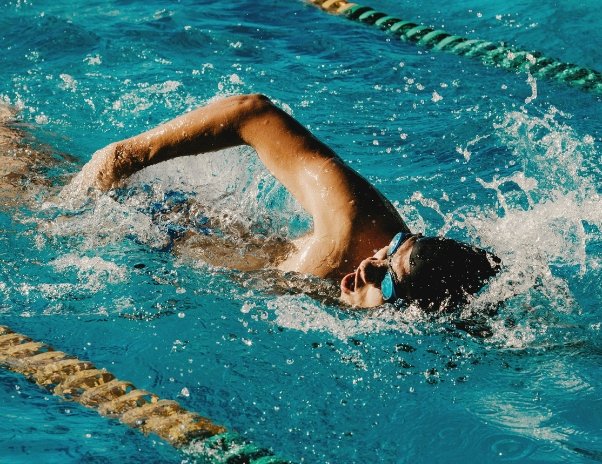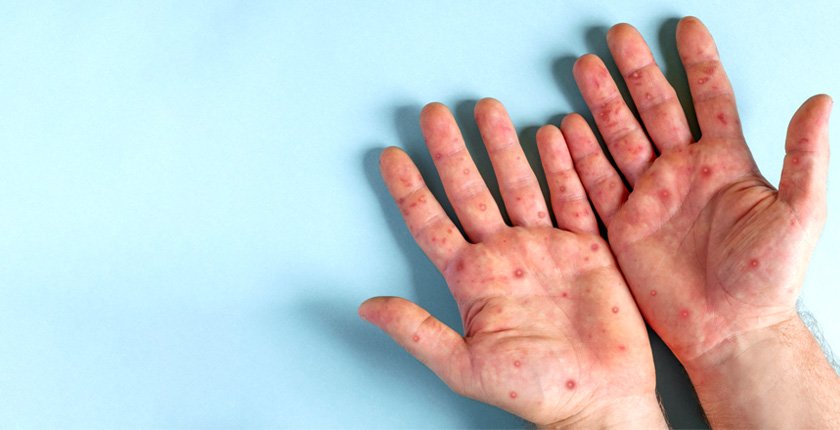
DEFINITIVE STRATEGIES FOR BANISHING PIMPLES AND ENHANCING SKIN RADIANCE
Introduction
Dealing with pimples can be a persistent challenge, affecting people of all ages and skin types. These blemishes not only cause physical discomfort but also impact self-esteem and confidence levels. However, armed with the right knowledge and effective strategies, managing pimples and attaining clear, radiant skin is entirely achievable. In this comprehensive guide, we’ll delve into the underlying practical tips for prevention, natural remedies, and professional treatment options to help you combat acne and embrace a healthier complexion.
Understanding Pimples: Causes and Characteristics
Pimples, or acne, arise when hair follicles become clogged with oil and dead skin cells, creating an ideal environment for bacterial growth. The resulting inflammation leads to the formation of various types of pimples, including blackheads, whiteheads, papules, pustules, nodules, and cysts. To effectively address pimples, it’s crucial to understand their underlying causes, which can range from hormonal fluctuations and genetics to lifestyle factors and environmental influences.
How to Reduce Pimples on the Face: Effective Strategies
Reducing pimples on the face requires a multifaceted approach that targets both the symptoms and root . Begin by establishing a consistent skincare routine that includes gentle cleansing with a mild cleanser to remove excess oil and impurities without stripping the skin’s natural moisture barrier. Incorporating topical treatments containing ingredients like benzoyl peroxide or salicylic acid can help unclog pores, eliminate acne-causing bacteria, and reduce inflammation. Additionally, spot treatments can be applied directly to pimples to accelerate healing and minimize the risk of scarring. By combining proper skincare practices with targeted treatments, individuals can effectively combat pimples and prevent future breakouts.
Preventive Measures Against Pimples: Building Healthy Habits
Prevention is often the best defense against pimples. Adopting healthy skincare habits, such as using non-comedogenic products and avoiding harsh ingredients, can help maintain the skin’s balance and reduce the risk of breakouts. Practising good hygiene, such as washing pillowcases regularly and avoiding touching the face, can minimize bacterial build-up and inflammation. Furthermore, maintaining a balanced diet,avoiding junl & high calorific value food staying hydrated, and managing stress levels and regular physical exercis & weight management can support overall skin health and prevent acne flare-ups.
Clear Skin Tips: Holistic Approaches to Skin Health
Achieving clear, radiant skin involves more than just treating pimples; it requires a holistic approach to skincare and overall well-being. Stay hydrated by drinking an adequate amount of water daily to flush out toxins and maintain skin hydration. Adopt a balanced diet rich in fruits, vegetables, lean proteins, and healthy fats to nourish your skin from the inside out. Get enough sleep to allow your body to repair and regenerate skin cells overnight, and protect your skin from sun damage by wearing sunscreen daily. Additionally, practice stress-reduction techniques such as meditation, yoga, or deep breathing exercises to minimize stress-related acne flare-ups and promote overall skin health.
Managing Acne: Techniques and Practices for Clearer Skin
Effective acne management involves a combination of lifestyle modifications, skincare routines, and, in some cases, professional interventions. Develop a personalized skincare regimen tailored to your skin type and concerns, incorporating gentle cleansers, exfoliants, and moisturizers. Topical treatments containing ingredients like retinoids, azelaic acid, or benzoyl peroxide can help target acne-causing factors and promote clearer skin. Consider professional treatments such as chemical peels, microdermabrasion, or laser therapy for stubborn or severe acne cases. Finally, make lifestyle changes such as eating a balanced diet, exercising regularly, and managing stress levels to support overall skin health and reduce the frequency and severity of pimples.
Seeking Professional Help for Pimple Removal: When to Consult a Dermatologist
While over-the-counter treatments and home remedies may suffice for mild acne, persistent or severe cases may require professional intervention. If pimples fail to respond to conventional treatments, or if they are accompanied by other symptoms such as pain, swelling, or scarring, it’s essential to seek guidance from a dermatologist. These skincare experts can assess the underlying causes of acne and recommend personalized treatment options, including prescription medications, chemical peels, or laser therapy, to effectively manage pimples and prevent long-term skin damage.
Conclusion: Empowering Yourself on the Journey to Clear Skin
In conclusion, managing pimples and achieving clear, radiant skin is an achievable goal with the right knowledge, strategies, and support. By understanding the causes of acne, adopting healthy skincare habits, and exploring various treatment options, individuals can take proactive steps towards healthier, blemish-free skin. Whether through preventive measures, natural remedies, or professional interventions, there are solutions available to help you overcome acne and embrace your natural beauty confidently. Remember, clear skin is not just about appearance—it’s about feeling comfortable and confident in your skin. By prioritizing self-care, making healthy lifestyle choices, and seeking professional guidance when needed, you can embark on the journey to clearer, healthier skin and embrace your natural beauty with confidence.
Frequently Asked Questions (FAQ):
1. What are some effective methods to reduce pimples on the face?
Effective methods to reduce pimples on the face include:
- Properly cleansing your face with a gentle and clear cleanser to remove excess oil and impurities.
- Using topical treatments having ingredients like benzoyl peroxide else salicylic acid to unclog pores and reduce inflammation.
- Applying spot treatments directly to pimples to help dry them out and promote healing.
- Avoiding picking or squeezing pimples to reduce inflammation.
2. How can one prevent pimples from appearing on the face?
To prevent pimples from appearing on the face, individuals can:
- Establish a regular skincare routine that has cleansing, gentle & periodic exfoliating, & moisturizing.
- Avoid using harsh or comedogenic skincare products that can clog pores and exacerbate acne.
- Practice good hygiene by regularly washing pillowcases, avoiding touching the face, and keeping hair away from the face.
- Maintain a balanced diet and avoid consuming processed foods and sugary snacks.
- 5. Control stress levels via relaxation methods such as meditation, yoga, or deep breathing exercises.
3. What are some clear skin tips individuals can incorporate into their daily routine?
To achieve clear skin, individuals can incorporate the following tips into their daily routine:
- Have enough water to stay hydrated and flush toxins from the body.
- Enjoy a balanced diet comprising of fruits, vegetables & nuts to nourish the skin from the inside out.
- Sleep enough to allow the body to repair and regenerate skin cells overnight.
- Apply sunscreen daily to protect your skin from harmful UV rays and prevent premature ageing.
- Go through stress-reduction techniques such as meditation, yoga, or deep breathing exercises to minimize stress-related acne flare-ups.
4. How can one effectively control and manage acne on the face?
Effective control and management of acne on the face involve:
- Enhancing a specialized skincare routine tailored to your skin type and concerns.
- Using topical treatments and medications as a dermatologist prescribes to target acne-causing bacteria and reduce inflammation.
- Avoid harsh skincare products and abrasive scrubbing that can irritate the skin and worsen acne.
- Following healthy lifestyle choices such as enjoying a balanced diet, exercising regularly, & managing stress levels.
- Avoid native medications over the counter steroid creams & home remedies which can exacerbate acne.
5. What lifestyle changes can contribute to achieving clear skin?
Several lifestyle changes can contribute to achieving clear skin, including:
- Enjoying a balanced diet helps to support skin health. Also, regular exercise assists in improving circulation and reduces stress that can help prevent acne breakouts.
- Do not smoke and avoid consuming more alcohol, as these habits can contribute to inflammation and skin damage.
- Follow a regular skincare routine and utilize products suitable for your skin type and concerns.
- Getting enough sleep allows the body to repair and regenerate skin cells overnight.
- Avoid exposure to dust, pollution, excessive sunlight
6. When should individuals seek professional assistance for pimple removal?
Individuals should seek professional assistance for pimple removal if:
- Pimples are severe, painful, or accompanied by other symptoms such as fever or swelling.
- Pimples leave behind scars or dark spots.
- Pimples interfere with daily activities or cause emotional distress.
7. What preventive measures against pimples can be practised regularly?
Regular preventive measures against pimples include:
- Washing your face two times a day with a gentle cleanser to eliminate dirt, oil, and makeup.
- Using non-comedogenic skincare products to avoid clogging pores.
- Avoid touching the face or picking at pimples, as this can spread bacteria and worsen inflammation.
- Keeping hair clean and away from the face prevents excess oil and dirt from transferring to the skin.
- Using gel-based sunscreen to protect the skin from sun damage without clogging pores.
8. What techniques can be employed to clear face acne effectively?
To clear face acne effectively, individuals can:
- Develop a consistent skincare routine tailored to their skin type and concerns.
- Utilize topical treatments containing benzoyl peroxide, salicylic acid, or retinoids to target acne-causing bacteria and promote cell turnover.
- Consider professional procedures such as chemical peels, microdermabrasion, or laser therapy to reduce acne and prevent scarring.
- Make lifestyle changes like eating a balanced diet, exercising consistently, and managing stress levels.
- Seek professional assistance from a dermatologist for personalized acne treatment recommendations tailored to individual needs and concerns.
Lorem ipsum dolor sit amet, consectetur adipiscing elit. Ut elit tellus, luctus nec ullamcorper mattis, pulvinar dapibus leo.







